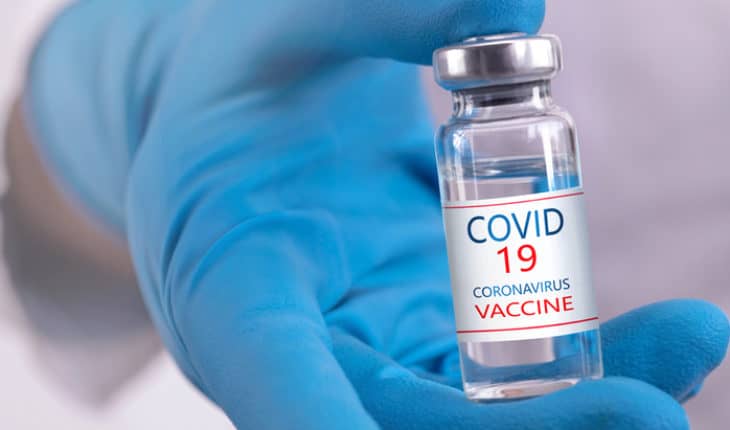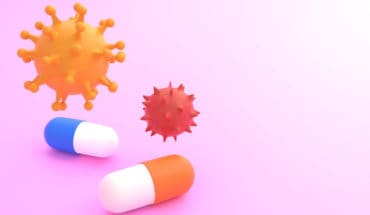Imperial researchers are set to begin trials to assess the safety and effectiveness of two of the UK’s coronavirus vaccines in development, when inhaled into the lungs.
The clinical team will compare COVID-19 vaccine candidates being developed by both Imperial College London and Oxford University, delivering the vaccines directly to the respiratory tract of human volunteers, by inhalation through the mouth.
The UKRI-NIHR funded research, led by Dr Chris Chiu, head of the Imperial Network for Vaccine Research, aims to assess the safety and efficacy of administering the vaccines as airborne droplets inhaled by a volunteer, rather than an injection into muscle.
The hope is that directly targeting the cells lining the airways – the typical point of infection for respiratory viruses – may induce a more effective immune response against the SARS-CoV-2 virus.
This could potentially accelerate the development of effective vaccines against COVID-19 by exploring additional delivery methods and targets.
Dr Chris Chiu, from the Department of Infectious Disease, who will lead the project, said: “We have evidence that delivering influenza vaccines via a nasal spray can protect people against flu as well as help to reduce the transmission of the disease. We are keen to explore if this may also be the case for SARS-CoV-2 and whether delivering COVID-19 vaccines to the respiratory tract is safe and produces an effective immune response.”
Dr Chiu added: “The current pandemic is caused by a respiratory virus which primarily infects people through the cells lining the nose, throat and lungs. These surfaces are specialised and produce a different immune response to the rest of the body, so it is critical we explore whether targeting the airways directly can provide an effective response compared to a vaccine injected into muscle.”
Vaccine Delivery
Currently, clinical trials are being carried out to assess the safety and efficacy of multiple COVID-19 vaccines delivered by intramuscular injection: these include Oxford’s ChAdOx1 nCoV-19, as well as Imperial’s own saRNA vaccine platform, which are both in clinical trials.
But scientists are keen to explore the potential for vaccines to be delivered to the respiratory tract. Here they could induce a localised, and potentially more specialised, immune response. It is unclear how this compares to the systemic immune response induced by injected vaccines.
Dr Chiu will work with Imperial’s Professor Robin Shattock and Oxford’s Professor Sarah Gilbert to assess the vaccines by delivering them to a small group of healthy volunteers as an aerosol – similar to how inhaled asthma medications are delivered.
A total of 30 people are expected to be recruited to the trials. For each vaccine, researchers will assess three dose levels (low, medium and high dose) with three volunteers per group (18 in total), followed by an additional six in each group at the best dose (12 total).
In addition to blood and nasal sample analyses, volunteers will undergo bronchoscopy to obtain samples from deeper within the lungs and monitor the effects in the lower respiratory tract.
Volunteers will receive aerosolised vaccines through a nebulizer, which will deliver the vaccine as airborne droplets through a mouthpiece. With direct vaccine administration to the respiratory tract, based on previous studies, lower doses may be required than by intramuscular injections to induce protective responses.
In addition to blood being analysed for the presence of neutralising antibodies (Immunoglobulin G, or IgG) and T cells, which fight the virus and protect against re-infection, the team will analyse nasal samples for the presence of specialised antibodies found in the nose and throat, called IgA, which would indicate a more specialised and localised immune response to the virus.
Localised Immune Response
Professor Robin Shattock, from Imperial’s Department of Infectious Disease and research lead on the Imperial vaccine, said: “A number of groups around the world are currently working on clinical trials for COVID-19 vaccines, and these will tell us whether these candidates can produce a systemic immune response against the virus. However, these trials are unlikely to tell us anything about the localised response in the nose, throat and airways – where the virus primarily attacks and invades cells.
“It may well be that one group has the right vaccine but the wrong delivery method, and only trials such as this will be able to tell us that. We look forward to assessing different delivery methods and pushing forward the global scientific effort against this virus.”
Professor Sarah Gilbert, from the University of Oxford, said: “We have already shown that ChAdOx1 nCoV-19 (AZD1222) is safe and induces strong immune responses after intramuscular injection. Delivering the vaccine to the respiratory tract instead may be a good approach to inducing immune responses in the best place to enable a rapid response after exposure to airborne virus. This is a small study which will provide some important information”
- Combination of drugs could prevent thousands of heart attacks - 21st April 2025
- UQ Study Links Poor Teen Diets to Heavy Social Media Use - 21st April 2025
- Gut microbiome could delay onset of type 1 diabetes - 3rd April 2025






